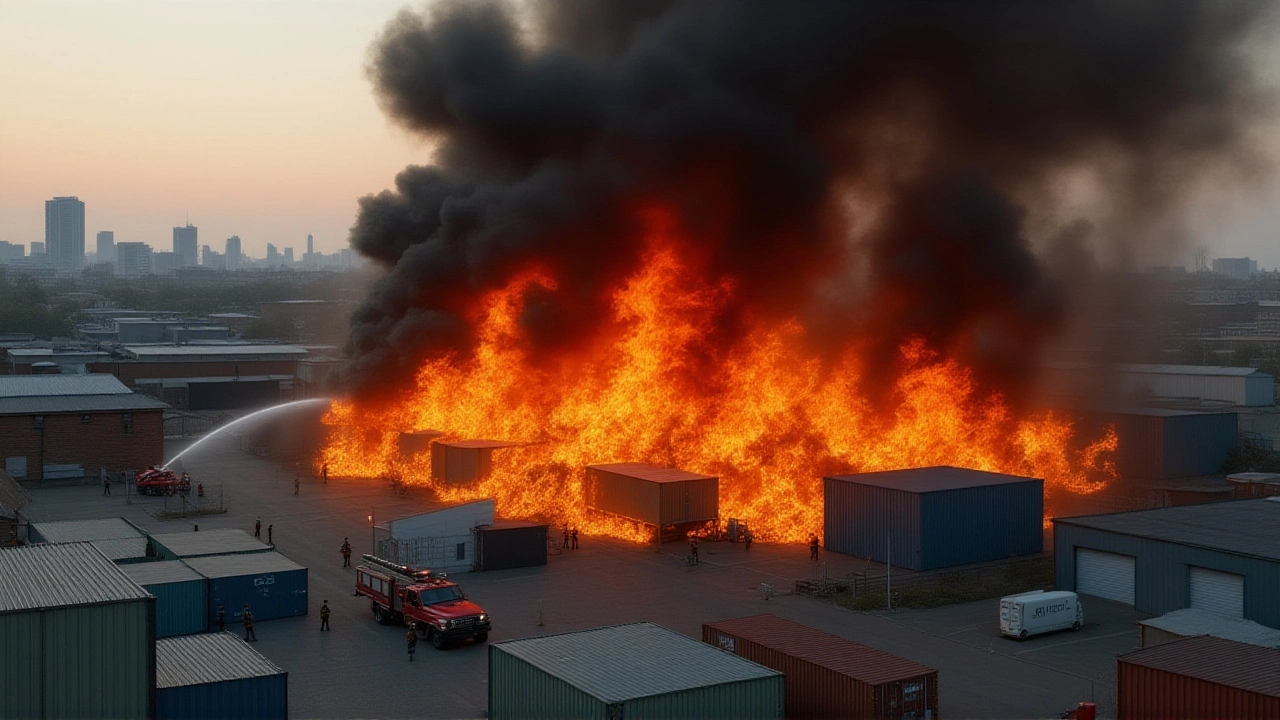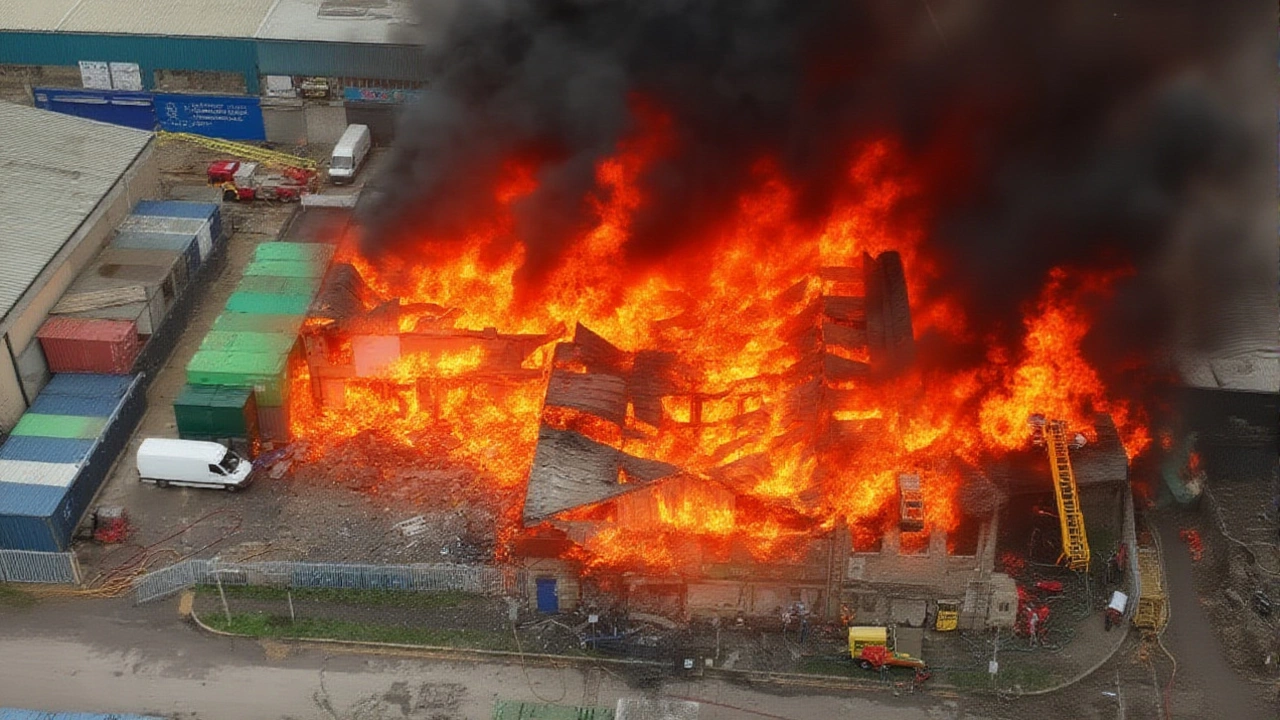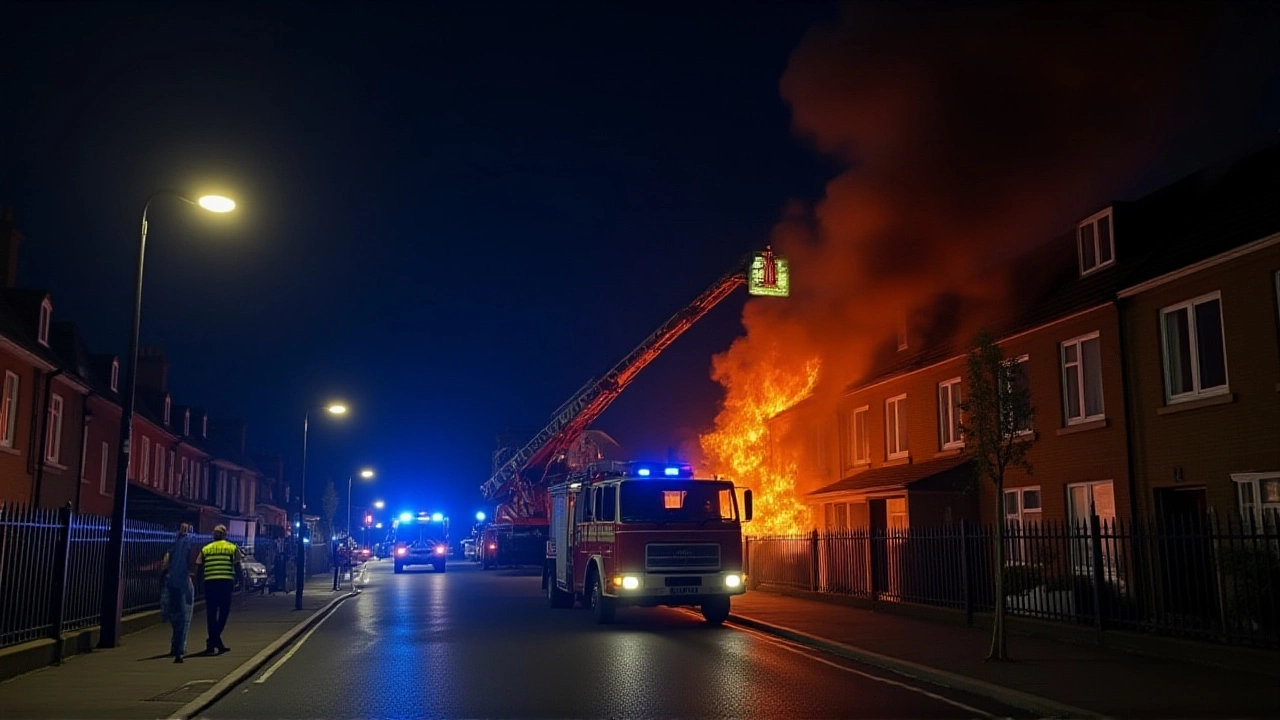Two people narrowly escaped death after a stray firework pierced the roof of a residential building in west London during Diwali celebrations, sparking a fierce blaze that engulfed the upper floors. The rescue, carried out by emergency crews in the early hours of October 20, 2025, comes just two years after a similar fire in Hounslow claimed six lives — a tragedy that still echoes through the community. This isn’t an isolated incident. It’s the latest in a disturbing pattern: firework-related emergencies spike every November, and Diwali — a festival of light — has become one of the most dangerous nights for Londoners.
When Celebration Turns to Catastrophe
The fire began when a single, uncontrolled firework — likely launched from a nearby garden or street — soared through the air and struck the roof of the building. Heat from the device melted through roofing material, igniting insulation and wooden framing. Flames spread upward in under three minutes. Neighbors reported hearing a loud pop, then screams. Firefighters arrived within seven minutes, finding smoke pouring from the third floor. Using ladders and thermal imaging, they located two residents — one elderly, one in their 30s — trapped in a back bedroom. Both were carried out unconscious but breathing, rushed to St. Mary’s Hospital in Paddington, where they remain in stable condition.The London Fire Brigade confirmed the fire was not caused by faulty wiring, gas leaks, or electrical appliances. Their preliminary report, issued October 21, 2025, pinned the cause squarely on a consumer-grade firework — the kind sold in street stalls and convenience stores across Hounslow, Brent, and Ealing. No one has been charged. No one has come forward to claim responsibility.
The Ghost of Hounslow: A Tragedy That Still Haunts
This rescue feels like a second chance — one that wasn’t granted in November 2023. On the night of November 12, 2023, a firework landed in a plastic recycling bin outside 23 Channel Close in Hounslow. The bin, filled with dry cardboard and paper, erupted in seconds. Flames raced up the building’s exterior, then broke through the roof. By 22:45, the entire ground and first floor were fully involved. Six people died — Bhavna Kishen, her three children aged 12, 10, and 8, and two family guests. They were overcome by smoke before they could escape.Senior Coroner Brown’s inquest in September 2025 found no criminal negligence. Just bad luck, poor placement, and a failure to recognize how fast fire travels. "It happened in a matter of seconds," Brown said. "Smoke filled the hallway before anyone could react."
Paul Askew, Deputy Assistant Commissioner of the London Fire Brigade, stood in the same courtroom and said: "On what was meant to be a night of celebration to mark the beginning of Diwali, a tragic accident occurred." His words carried the weight of 710 emergency calls handled that night — 17 of them firework-related. That’s a 400% spike compared to a typical November evening.

Who’s Really at Risk?
The data doesn’t lie. Hounslow, with its 28.3% Indian-origin population, recorded the highest number of firework-related calls in 2023 — over 120 in a single week. The London Fire Brigade has long warned that cultural celebrations, especially Diwali, are peak risk periods. Yet enforcement remains minimal. Fireworks are legal to buy and use — with no age restrictions, no licensing, and no mandatory safety briefings.The bereaved father, Mr. Kishen, spoke out in October 2025: "I wish they were still alive because what happened that night destroyed my life." He added, "I want the public to think about those around them before using fireworks. Fireworks aren’t a game."
His words landed hard. But for many families, fireworks are part of tradition — a symbol of joy, prosperity, and community. Banning them isn’t the answer. Educating people — in Punjabi, Gujarati, Urdu, and Bengali — is.
The Safety Push: Too Little, Too Late?
In response, the London Fire Brigade launched its Firework Safety Campaign on November 1, 2025. The campaign, running through November 30, 2025, targets 320+ faith organizations — including the National Council of Hindu Temples UK and the Network of Sikh Organisations — to distribute multilingual safety guides. Volunteers are knocking on doors in 15,000 high-risk social housing units across west London, installing free smoke alarms and teaching families how to create "fire-safe zones" — clearing flammable materials from balconies and bins.But here’s the problem: 20% of homes in Hounslow still lack working smoke alarms. And many residents, especially older generations, don’t trust alarms — they’ve seen them go off during cooking, and assume they’re unreliable.
"We’re not asking people to stop celebrating," said Commissioner Andy Roe, head of the London Fire Brigade. "We’re asking them to celebrate safely. One firework in the wrong place can end six lives. We’ve seen it. We can’t unsee it."

What Comes Next?
The London Fire Brigade is now pushing for new legislation: mandatory safety labels on all fireworks sold in the UK, a ban on fireworks sold within 100 meters of residential buildings during Diwali, and a city-wide "quiet hour" from 10 PM to midnight on Diwali night — when 80% of incidents occur. A council motion is expected in January 2026.Meanwhile, the two survivors from the October 2025 fire are recovering. Their names haven’t been released. But their story will be. Because if we don’t act, someone else’s child might not come home next time.
Frequently Asked Questions
Why are fireworks so dangerous during Diwali in London?
Fireworks during Diwali are often launched in densely populated residential areas, near flammable materials like recycling bins, dry leaves, or wooden balconies. The 2023 Hounslow fire started in a plastic bin filled with cardboard — and spread in under 30 seconds. With over 1,200 firework-related incidents annually in London, and a 400% spike during Diwali, the risk is structural, not accidental.
How many people have died in Diwali-related fires in London since 2020?
Since 2020, at least 11 people have died in firework-related residential fires in London, with six of those fatalities occurring in the November 2023 Hounslow blaze. The London Fire Brigade has recorded 17 firework-related incidents during the 2023 Diwali period alone — a number that has held steady or increased every year since.
Are fireworks banned in the UK during Diwali?
No. Fireworks are legal for public use between October 15 and November 10, and on Diwali night. There are no city-wide restrictions during cultural festivals, though local councils can impose temporary bans. Hounslow and Brent have issued voluntary safety advisories but no legal bans. The current campaign relies on education, not enforcement.
What can families do to prevent firework accidents?
Use fireworks in open spaces away from buildings, never near recycling bins or dry vegetation. Always have water or a fire extinguisher nearby. Ensure smoke alarms are working — and test them monthly. The London Fire Brigade offers free alarm installations in high-risk areas. And if you’re unsure — don’t use them. Celebrate with lights, not flames.
Why aren’t more people being held accountable for these fires?
In nearly every case, the origin of the firework is unknown. No one takes responsibility. Without CCTV footage or eyewitnesses, police can’t identify who launched the firework. Even when they can, UK law treats accidental firework deaths as tragedies, not crimes — unless gross negligence is proven. That’s why prevention, not punishment, is now the focus.
Is the London Fire Brigade’s new campaign enough?
It’s a start — but not enough. Installing 15,000 alarms is vital, but without legal limits on where and how fireworks are used, the risk remains. Experts say a combination of education, targeted bans near housing, and public awareness — especially in languages spoken by 70% of Diwali celebrants — is needed. The campaign runs for 30 days. The danger lasts all year.
